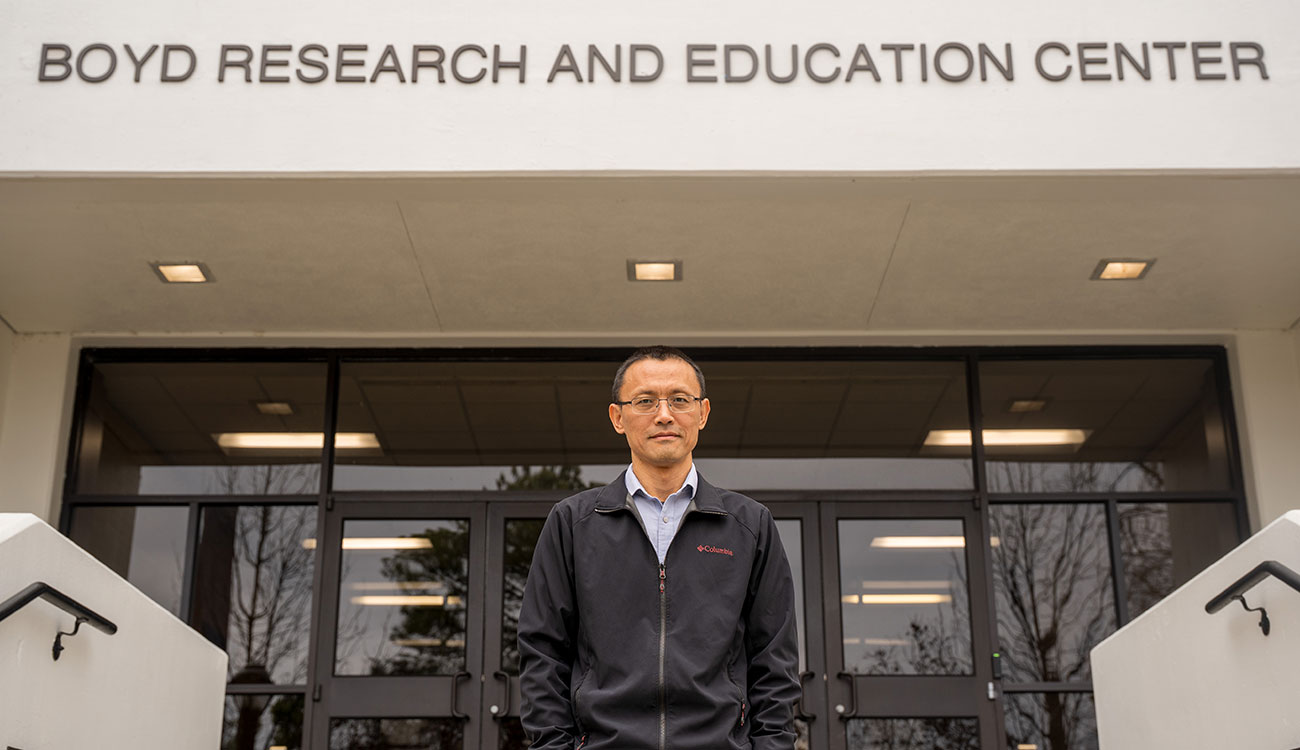Engineering the Future: Jidong Yang on AI, Transportation, and Education
Engineering the Future: Jidong Yang on AI, Transportation, and Education

Originally posted in full by UGA Research.
Growing up, nothing fascinated Jidong Yang more than how things were built. It began when he learned about the Great Pyramid of Giza. He marveled at how such a large structure was built with so little technology.
“I was so curious about the process, and it sort of became my motivation,” said Yang, associate professor in the University of Georgia’s College of Engineering and instructor in the online M.S in Civil Engineering. “I began to look at structures and wonder how they were built.”
From buildings to bridges, and nearly every human-made structure throughout civilization, Yang wondered how they were designed, constructed, and integrated into the natural world. From that moment, he knew he wanted to study engineering.
Yang received his doctorate in civil engineering from the University of South Florida. In the years following, he worked in both private and public sectors, conducting design and operational analysis of transportation networks and investigating safety for roads and bridges.
And for the past six years, Yang and his team have researched the intersection of artificial intelligence (AI) and transportation, exploring everything from enhancing autonomous vehicle safety in diverse weather to using large AI models for better risk analysis and collecting data to help optimize EV charging network locations.
While research and development continue to be a deep passion for Yang, he’s found a profound sense of purpose educating students and shaping the College of Engineering’s curriculum and strategic direction. Looking back on his years in industry, he recognizes the value of that experience in the classroom.
“I strive to weave my industry experiences into my teaching,” he said. “I try to design my material in such a way that a student can easily absorb it and relate it to their own experience. Teaching and research are inseparable to me.”
Yang constantly updates his teaching material with his own research, as well as the latest developments in the field. While his expertise has deepened over time, the rapid advancements in AI and emerging technologies have reshaped his perspective, fueling a renewed curiosity about their transformative impacts on engineering.
“Today’s AI, driven by large foundation models, is incredibly powerful, particularly their general knowledge and reasoning abilities,” he said. “It has laid a new foundation for how we approach problems. So now, in both my courses and research, I’m looking at how we can build upon that foundation and push the boundaries of AI-Human collaboration and synergy.”
Learn more about UGA’s Online Master of Science in Civil Engineering.
